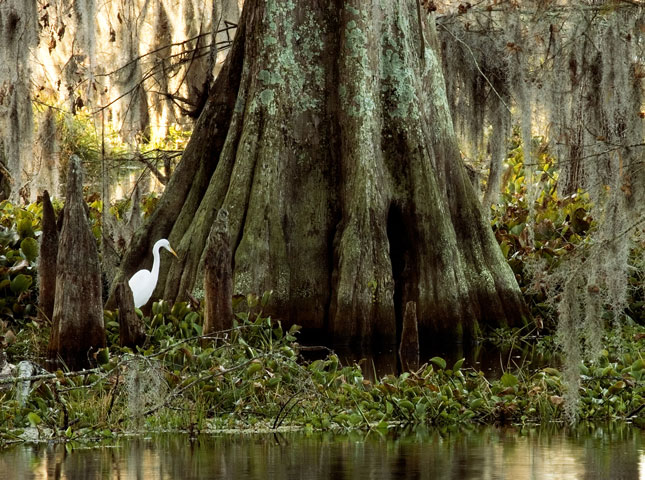
(Dreamstime)
In his encyclical "Laudato Si', on Care for Our Common Home," Pope Francis interconnects two fundamental crises of our time: an ecological crisis that threatens the life of the planet and a socioeconomic crisis in which the benefits of society tend to flow to the top while the poorest and most vulnerable bear ever-increasing and death-dealing burdens.
These crises are rooted in a deeper spiritual-cultural crisis in which disconnections between persons and nature, the self and others, and the self and authentic human and ecological development block transformation necessary for the future.
Through the seemingly endless din and cacophony of social media outlets dissecting the pope's messages to Cuba and the United States, how do we listen and attend to the "cry of the earth" and "hear the cry of nature itself"?
Francis begins by praising the Lord "through our sister, Mother Earth, who sustains and governs us, and who produces various fruit with colored flowers and herbs."
Immediately, the pope laments how "this sister now cries out to us because of the harm we have inflicted on her by our irresponsible use and abuse of the goods with which God has endowed her."
Francis invites "a bold cultural revolution" that shifts humanity away from our "unrestrained delusions of grandeur" toward a renewed and authentic integral ecology.
I believe an acoustics of the heart and the Earth is a key theological and spiritual source for the bold cultural revolution Laudato Si' invites. Such an acoustics, understood as a retuning of hearts and ears to cries from oppressed peoples and the Earth, constitutes a vital theological, moral and ascetic practice of the pope's "integral ecology."
Drawing upon his training in Ignatian spirituality, Francis attunes listeners to the acoustics of the heart, the spiritual art of silencing ourselves so that we may be present to the movement of the Spirit within our hearts, where God draws us to discern a way of wisdom and care for all others.
Quoting the bishops of Japan, the pope invites a deeper listening in our hearts, minds and souls: "To sense each creature singing the hymn of its existence is to live joyfully in God's love and hope."
Francis invites a contemplation of creation that is about hearing God's message, "to listen to a paradoxical and silent voice," in the words of Pope John Paul II, who said that alongside Scripture, creation itself reveals a "divine manifestation" whereby we may yet learn to see ourselves in relationship to all other creatures.
Francis also cites French philosopher Paul Ricouer in noting that, in relation to all other creatures human and beyond, "I express myself in expressing the world; in my effort to decipher the sacredness of the world, I explore my own."
This is why the pope chose his papal name after St. Francis of Assisi. St. Francis, no doubt, and many other nature mystics listen to and praise creation by echoing Scripture, including but not limited to the Books of Genesis, Psalms and Wisdom.
Now a scientific field of acoustic ecology invites people of faith to listen to Scripture with new ears to learn how "creation is groaning" (Romans 8:22) today.
Briefly put, acoustic ecology attends to the interrelationships between sound, nature and society from multiple scientific perspectives.
A recent NPR series examined "Close Listening: How Sound Reveals the Invisible." It explored how it takes a musician's ear to understand complex song in whale calls and that those calls may be sending us warnings about ecological threats whales perceive. Listening to whale migration reveals a sea of noise pollution too.
Whenever I walk with my basset hound in the early morning, I always wonder what is happening in the sometimes cacophony, sometimes symphony of diverse birds and animals at the edge of the southern Louisiana swamp. Learning how birds and animals communicate with each other invites wonder and awe.
Acoustic ecology finds rich networks of conversations happening across species in the forest (not only intraspecies), including how different species communicate with each other about predators and other threats to the web of life. Insect communities need good vibrations too (not just the Beach Boys) and you have to feel the rumble of elephants in the jungle to learn elephant conversation.
Acoustic ecology concerns the interrelationships between all species in local and global networks. For example, the Bayaka people who live in the Central African Republic make music constantly in all their interaction with nature. The movie "Oka" listened to the Bayaka through the work of the musicologist Louis Sarno.
Oka means "listening" in the Aka language. The Bayaka are hunter-gatherers who live closely to nature. Like the planet, their way of life and existence is threatened by modern technological society.
Francis invites us to wonder at the whole of creation and listen -- not only individually but collectively as a species -- to the soundscapes reverberating throughout creation. How might God be preparing us to experience transformed desire, personally and collectively, for new vision, love, courage and hope that renews the face of the Earth?
If we attend and listen to the groans within ourselves, from peoples everywhere, and the Earth, we may yet hear the cry of new life and a new creation. When will we groan with all peoples, species and the Earth for God?
[Alex Mikulich is co-author of The Scandal of White Complicity in U.S. Hyper-Incarceration: A Nonviolent Spirituality of White Resistance, which is being re-issued in paperback in February 2016.]
Editor's note: Want more stories from Eco Catholic? We can send you an email alert once a week with the latest. Just go to this page and follow directions: Email alert sign-up.




